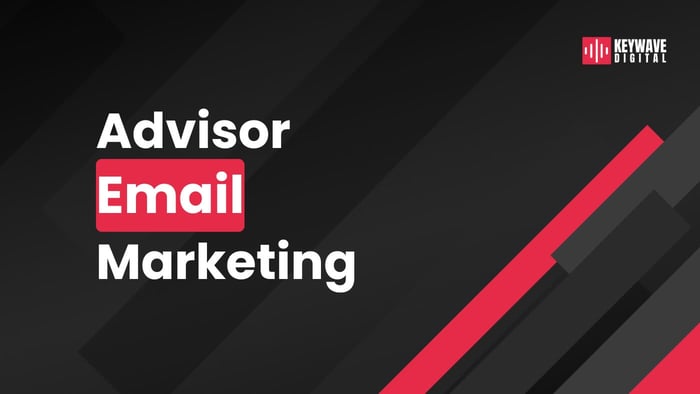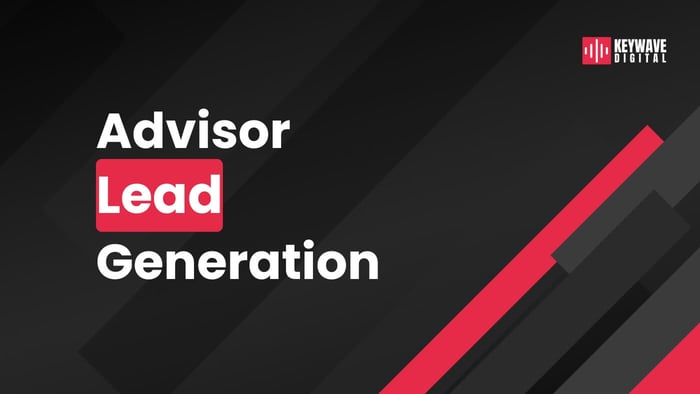Introduction
In the digital age, email has emerged as a powerful tool for businesses across all industries, and email marketing for financial advisors is no exception. However, the key to successful email campaigns lies not in sporadic, desperate attempts to get appointments booked, but in a systematic, strategic approach.
Table of Contents
- Introduction
- The Importance of a Systematic Approach
- Auditing Your Current Efforts
- Deliverability: The First Step to Success for a Financial Advisor Email Marketing Strategy
- Nurturing Leads and Clients
- The Power of Segmentation
- Crafting Compelling Content
- The Art of the Subject Line
- The Importance of A/B Testing
- The Role of Automation
- The Power of Personalization
- Tracking and Analyzing Your Results
- The Value of Consistency
- Building a Quality Email List
- The Role of Email Marketing for Financial Advisors
- The Impact of Email Marketing on Client Retention and Satisfaction
- Leveraging Email Marketing for Referrals
- Email Marketing and Cross-Selling
- The Importance of Compliance in Email Marketing
- The Role of Email Marketing in Lead Generation
- The Power of Email Marketing in Building Trust
- The Role of Email Marketing in Client Communication
- The Impact of Email Marketing on Business Growth
- The Integration of Email Marketing with Other Digital Marketing Strategies
- The Importance of Mobile Optimization in Email Marketing
- The Power of Email Marketing Analytics
- The Future of Email Marketing for Financial Advisors
- Conclusion
The Importance of a Systematic Approach

A systematic approach to email marketing involves a well-planned, organized, and consistent strategy. It's not about firing off random emails; it's about understanding your target audience, delivering valuable content, and nurturing relationships. This approach can help financial advisors not only attract new leads but also nurture existing clients and encourage referrals.
Auditing Your Current Efforts
Before you can improve your email marketing, you need to understand where you currently stand. This involves auditing your current email marketing efforts, examining your email open rates, click-through rates, bounce rates, unsubscribe rates, and complaint/spam rates.
By understanding these metrics, you can identify areas of improvement and track the success of your future email campaign efforts. As part of our email strategy, we provide a comprehensive audit of your current efforts, giving you a clear picture of your starting point and helping you measure your progress as you implement our system.
Deliverability: The First Step to Success for a Financial Advisor Email Marketing Strategy

Deliverability is a crucial aspect of email sending. If your emails aren't reaching your subscribers' inboxes, your message is lost, no matter how compelling it might be. Ensuring deliverability involves maintaining a clean email list, following best practices for email design and content, and staying compliant with email laws and regulations.
Nurturing Leads and Clients
Once your emails are reaching your subscribers, the next step is to nurture those relationships. This involves providing valuable, relevant content that meets your email subscribers' needs and interests. But it's not just about attracting new leads; it's also about nurturing existing clients. By regularly engaging with your clients through email, you can encourage reviews, referrals, and cross/upsells.
The Power of Segmentation

One of the most effective strategies in email marketing is segmentation. This involves dividing your email list into different categories based on various factors such as the type of financial services they're interested in, their financial goals, or their stage in the customer journey.
By segmenting your list, you can send more personalized and relevant emails to your subscribers, which can significantly improve your engagement rates. Our systematic approach to email includes advanced segmentation strategies, ensuring that your communications are tailored to each subscriber's unique needs and interests.
Crafting Compelling Content
The content of your emails is what provides value to your subscribers. It's what keeps them opening your emails and engaging with your business. Your content should be informative, relevant, and valuable. This could include financial tips, industry news, updates about your services, or educational resources.
Remember, the goal is not to sell in every email but to build a relationship with your subscribers and establish your business as a trusted authority in the financial advisory sector.
The Art of the Subject Line
The subject line is the first thing your subscribers see when they receive your email. A compelling subject line can significantly increase your open rates. It should be short, engaging, and give a clear indication of what the email is about.
Personalizing the subject line by including the subscriber's name can also improve your open rates.
The Importance of A/B Testing

A/B testing involves sending two variations of an email to different segments of your email list to see which one performs better. This could involve testing different subject lines, email content, call-to-actions, or send times.
By regularly conducting A/B tests, you can continuously improve your email marketing strategy based on data-driven decisions.
The Role of Automation
Email automation can save you a significant amount of time and ensure a consistent communication schedule with your subscribers. This could involve setting up automated emails to be sent when a new subscriber joins your list, when a subscriber completes a certain action, or at regular intervals such as a monthly newsletter.
Automation can also help you nurture leads more effectively by sending a series of emails designed to guide them through the customer journey.
The Power of Personalization
In today's digital age, personalization of email campaigns is key to standing out in your subscribers' inboxes. This involves more than just including the subscriber's name in the email. It's about understanding their needs, interests, and financial goals and tailoring your content to meet those needs.
By personalizing your emails, you can build a stronger connection with your subscribers and improve your engagement rates.
Tracking and Analyzing Your Results
One of the advantages of email campaigns is the ability to track and analyze your results. This includes metrics such as open rates, click-through rates, conversion rates, and unsubscribe rates.
By regularly reviewing these metrics, you can gain insights into what's working and what's not in your email marketing strategy and make data-driven decisions to improve your results.
The Value of Consistency
Consistency is key in email sending. This involves not only the frequency of your marketing emails, but also the consistency in your messaging and branding.
By maintaining a consistent communication schedule and consistent branding, you can build trust with your subscribers and stay top of mind.
Building a Quality Email List

The success of your email marketing strategy largely depends on the quality of your email list. This involves not only the number of subscribers but also the quality of those subscribers. It's better to have a smaller list of engaged subscribers who are interested in your services than a larger list of subscribers who never open your emails.
Building a quality email list involves providing value to attract the right subscribers, maintaining a clean list by regularly removing inactive subscribers, and staying compliant with email laws and regulations.
The Role of Email Marketing for Financial Advisors
In the financial advisory sector, email campaigns play a crucial role in nurturing relationships with current clients and leads. It's a way to provide value, establish trust, and stay top of mind. Whether it's sharing your financial planning tips, industry news, or updates about your services, email newsletters, and sequences can help you build stronger relationships and convert leads into clients.
The Impact of Email Marketing on Client Retention and Satisfaction
Client retention is a critical aspect of the financial services industry. By maintaining regular communication through email, you can keep your clients engaged and informed, increasing their likelihood of staying with your services. Regular communication through email can help you maintain a strong relationship with your clients, increasing their satisfaction and loyalty.
While attracting new clients is important, retaining existing clients is just as crucial for the growth of your financial advisory business. Financial advisor email marketing allows you to provide ongoing value to your clients, reinforcing their decision to choose you as their financial advisor, and keeping your business top of mind. This regular communication can increase client satisfaction, loyalty, and retention.
Marketing emails can also be used to re-engage clients who haven't interacted with your business in a while. One effective strategy is the use of customer win-back sequences. These are a series of emails designed to remind clients of the value your services provide and encourage them to re-engage with your business. For some email recipients for example, you might share the success stories of other clients, offer a special incentive, or simply remind them of the benefits of your financial advisory services.
Leveraging Email Marketing for Referrals
Referrals are a powerful source of new business in the financial advisory sector. By nurturing your existing clients through your email campaigns, you can encourage them to refer their friends and family to your services.
This could involve sending emails specifically asking for referrals or simply providing such exceptional value that your clients are naturally inclined to refer others to you.
Email Marketing and Cross-Selling
Cross-selling is another effective strategy for growing your financial advisory business. Once a client has availed of one of your services, they might be interested in others. Emailing allows you to inform your clients about your other services that they might find valuable, increasing your revenue per client.
The Importance of Compliance in Email Marketing
In financial advisor marketing, compliance is crucial. This is no different with your emails. It's essential to ensure that your email strategy complies with laws and regulations such as the CAN-SPAM Act. This includes providing a clear way for subscribers to opt out of your emails, including your physical postal address in your emails, and not using misleading header information or subject lines.
The Role of Email Marketing in Lead Generation

Email messages play a significant role in converting leads for financial advisors. By offering valuable content such as financial tips or industry news in exchange for a visitor's email address, you can convert website visitors into leads and potential customers. Once they're on your email list, you can nurture them with regular, valuable content, guiding them along the customer journey from lead to client.
Another effective strategy for nurturing leads is the use of flash sale emails. These are limited-time offers that create a sense of urgency and can encourage leads to take the next step in their journey with your services. For example, you might offer a discounted consultation or a special bonus for clients who sign up for your services within a certain timeframe. These flash sale emails can be a powerful tool for converting leads into clients.
The Power of Email Marketing in Building Trust
Trust is a crucial factor in the financial advisory sector. Clients need to trust you with their financial future. Email marketing allows you to build this trust by regularly providing valuable, relevant content.
By demonstrating your financial industry expertise and consistently delivering value, you can establish your business as a trusted authority in the financial advisory sector.
The Role of Email Marketing in Client Communication
Email is a powerful tool for client communication. It allows you to keep your clients informed about updates to your services, industry news, or changes in the financial landscape.
Regular communication through email can help you maintain a strong relationship with your clients, increasing their satisfaction and loyalty.
The Impact of Email Marketing on Business Growth
Email marketing can have a significant impact on the growth of financial advisors. By nurturing leads, converting them into clients, and encouraging referrals, email marketing can help you increase your client base and revenue. With a systematic approach to email marketing, you can leverage this powerful tool to achieve your business goals.
The Integration of Email Marketing with Other Digital Marketing Strategies

Email marketing campaigns don't exist in a vacuum. It's most effective when integrated with your other digital marketing strategies. This could involve promoting your latest blog posts in your emails, using email to drive traffic to your website, or using your social media platforms to grow your email list.
By integrating your email outreach with your other digital marketing strategies, you can create a cohesive online presence that drives results.
The Importance of Mobile Optimization in Email Marketing
With more and more people checking their emails on their mobile devices, mobile optimization is no longer optional in email correspondence. This involves ensuring that your emails look and function well on mobile devices. From your email design to your subject lines to your call to action, every element of your email should be optimized for mobile.
The Power of Email Marketing Analytics
Email marketing provides a wealth of data that you can use to improve your strategy. From open rates to click-through rates to conversion rates, these metrics can provide valuable insights into your audience's behavior and preferences.
By regularly reviewing and analyzing these metrics, you can make data-driven decisions to optimize your email strategy.
The Future of Email Marketing for Financial Advisors
As technology continues to evolve, so too does the landscape of email marketing. With advancements in personalization, automation, and analytics, the potential of email communication is only set to grow.
By staying up-to-date with the latest trends and best practices, you can ensure that your email marketing strategy remains effective and continues to drive results for your business.
Conclusion
We hope that you've found value in this post and are well on your way to implementing a systematic approach to email marketing in your financial advisory business. The power of email is undeniable, but it requires strategic planning, consistent execution, and continuous optimization to truly unlock its potential.
However, we understand that as a financial advisor, your expertise lies in helping your clients achieve their financial goals, not in email marketing. That's where our service comes in. We've developed a proven email marketing system designed specifically for financial advisors. Our system takes into account all the aspects we've discussed in this blog post, from audience understanding and content delivery to mobile optimization and analytics.
But we don't just provide a system; we provide a partnership. We work with you to understand your unique needs and goals, and we're there to support you every step of the way. Our goal is to help you convert more leads, nurture existing clients, increase client retention, and ultimately grow your business.
If you're ready to take your email strategy to the next level and see the impact a systematic approach can have on your business, we invite you to schedule a call with our team. We'd love to learn more about your business and show you how our system can help you achieve your business goals.






